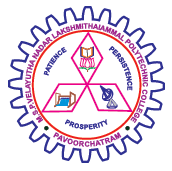Established in 1997. We create our students with strong theoretical knowledge, good practical exposure, critical thinking and innovation.
Why MSPVL is best for Electrical and Electronics Engineering
-
You will be taught by experts with a passion for the subject
-
Our courses reflect all the latest developments and the needs of industry
-
You'll have privileged access to state-of-the-art facilities
-
We offer a wide range of scholarships, Add-on Course, summer placements, industrial seminars and exclusive employment opportunities
-
We train future leaders by encouraging you to think in innovative ways and challenge existing practice
Scope Of Electrical & Electronics Engineering
In simple terms, Electrical Engineering is a branch of Engineering that deals with concepts related to electricity and electric machinery such as- generation, transmission and use of electricity, electromagnetism, equipment like generator, motors, transformers, AC Current, DC Current, circuit networks, control systems etc.
To get a better idea about what the course is actually like, let us take a look at some of the important subjects present in Electrical Engineering course.
- Electrical Circuit Theory
- Transducers and Signal Conditioners
- Measurements and Instruments
- Operation and maintenance of Electrical Equipment
- Micro controller
- Electrical Estimation and Energy Auditing
- Control of Electrical Machines
- Power Electronics
Types of Job Roles Electrical Engineer
The most popular electrical engineering job profiles are given below:
- Micro Electrical Engineer: They deal with the design and microfabrication of tiny electronic circuit components.
- Electrical Engineer: The electrical engineer work in function of the variety of functional groups that are involved in the production, development, and implementation of electrical production.
- Power Engineer: The power engineer are responsible for the design of electrical designers such as transformers, power electronics, generators, motors etc.
- Instrumentation Engineer: They deal with the design of measuring devices for pressure, temperature, and flow.
- Telecommunications Engineer: Telecommunications engineer deal with the transmission of information through the optical fiber or via cable
- Electrical Design Engineer: Electrical design engineer design a new electrical system for various applications. They are mainly responsible for developing system specifications and layouts.
Apart from the above, new jobs are being generated in different fields pertaining to -
- Design & Development
- Scientific Research
- Maintenance
- Infrastructure
- Manufacturing
Employment Opportunities for Electrical Engineer
Electrical engineers can find a number of employment opportunities in various different sectors. Some of the top sectors that hire electrical engineers are listed below:
- Engineering Services
- Electric power generating installations
- Indian Railways
- Aerospace Manufacture Industry
- Automobile Industry
- Airports Authority of India
- Electricity transmission and distribution organisations
- Government Electrical Works Department
- Navigational equipment manufacturing industries
- Architecture and Construction Firms.
Course Outline:
III Semester
- Electrical Circuit Theory
- Electrical Machines-I
- Electronic Devices and Circuits
- Electrical Circuits and Machines Practical
- Electronic Devices and Circuits Practical
- Electrical Work Shop Practical
- Computer Applications Practical
IV Semester
- Electrical Machines – II
- Measurements and Instruments
- Digital Electronics
- Transducers and Signal Conditioners
- Electrical Machines and Instrumentation Practical
- Integrated Circuits Practical
- Life and Employability Skill Practical
V Semester
- Generation transmission and switchgear
- Micro controller
- Electrical Estimation and Energy Auditing
- Elective Theory-I
- Control of Electrical Machines
- Programmable Logic Controller
- Electrical Machine Design
- Computer Aided Electrical drawing Practical
- Micro Controller Practical
- Elective Practical – I
- Control of Electrical Machines Practical
- Programmable Logic Controller Practical
- Electrical Machine Design practical
VI Semester
- Distribution and Utilization
- Operation and Maintenance of Electrical Equipment
- Elective Theory-II
- Power Electronics
- Bio-Medical Instrumentation
- Computer Hardware and Networks
- Wiring and Winding Practical
- Electrical Circuits Simulation Practical
- Elective Practical – II
- Power Electronics Practical
- Bio-Medical Instrumentation Practical
- Computer Hardware and Networks Practical
- Project Work
